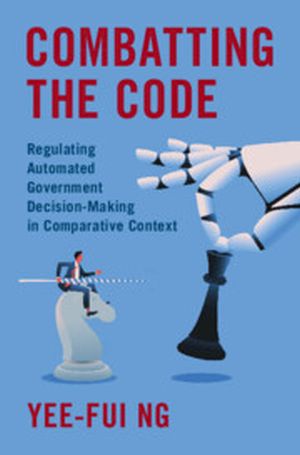
Across the world, governments are grappling with the regulatory burden of managing their citizens' daily lives. Driven by cost-cutting and efficiency goals, they have turned to artificial intelligence and automation to assist in high-volume decision-making. Yet the implementation of these technologies has caused significant harm and major scandals. Combatting the Code analyzes the judicial, political, managerial, and regulatory controls for automated government decision-making in three Western liberal democracies: the United States, the United Kingdom, and Australia.
Yee-Fui Ng develops a technological governance framework of ex ante and ex post controls within an interlinking network of horizontal and vertical accountability mechanisms, which aims to prevent future disasters and safeguard vulnerable individuals subject to automated technologies. Ng provides recommendations for regulators and policymakers seeking to design automated governance systems that will promote higher standards of accountability, transparency, and fairness.